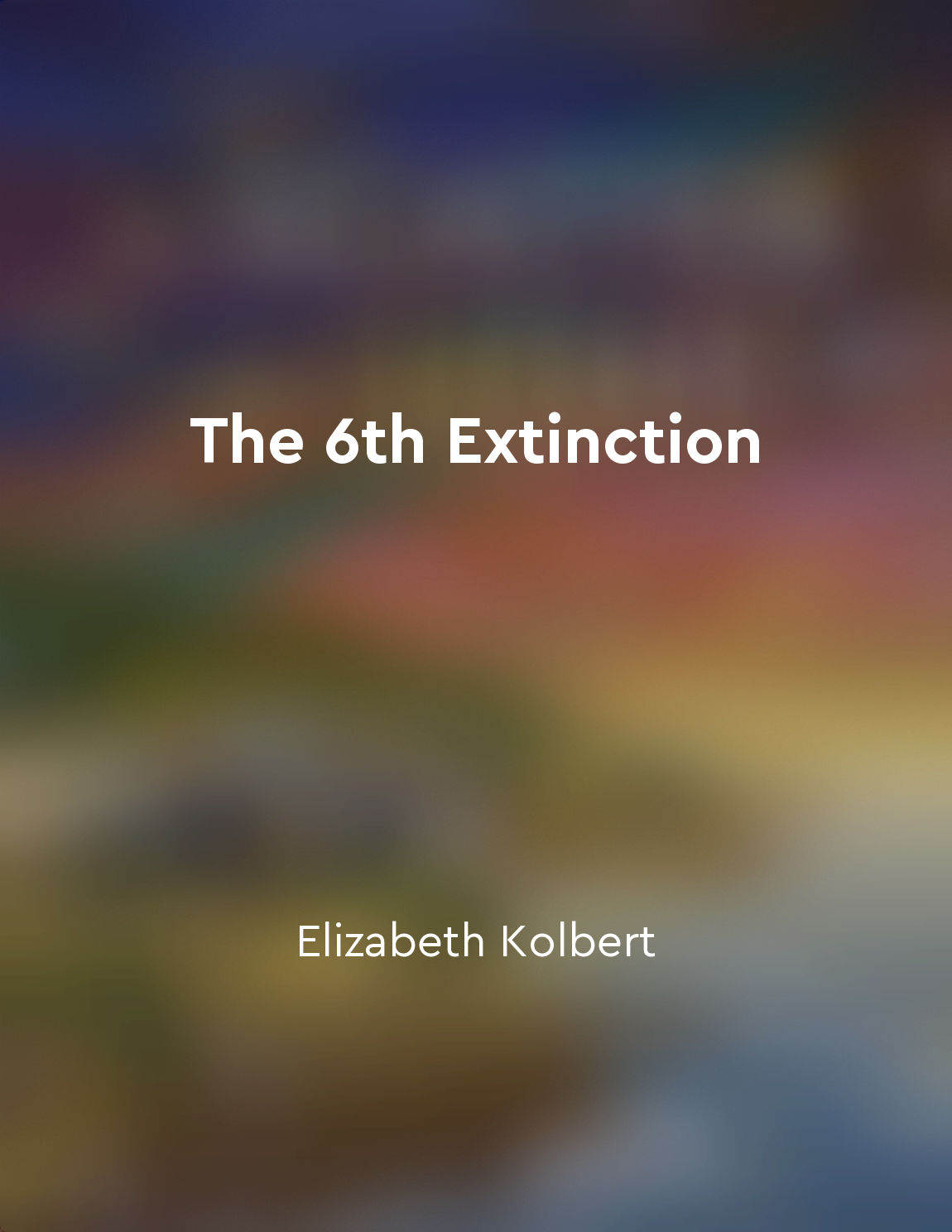Pesticides threaten the survival of endangered species from "summary" of Silent Spring by Rachel Carson
The use of pesticides in our environment has brought about a silent but deadly threat to many species of wildlife. These chemicals, designed to kill unwanted pests, often end up harming not just the target species, but also innocent bystanders in the ecosystem. Endangered species, already teetering on the brink of extinction, are particularly vulnerable to the toxic effects of these chemicals. When pesticides are sprayed over vast agricultural lands, they do not discriminate between pests and beneficial insects. Pollinators like bees and butterflies, crucial for the reproduction of many plant species, are inadvertently poisoned by these chemicals. As a result, the populations of these pollinators decline rapidly, leading to a cascading effect on the entire ecosystem. Plants that rely on these pollinators for reproduction may fail to reproduce, ultimately impacting the animals that depend on these plants for food. Moreover, pesticides can also directly harm endangered species through contamination of their habitats. Birds of prey, such as eagles and falcons, are particularly susceptible to pesticide poisoning due to their position at the top of the food chain. When these birds consume prey that has been exposed to pesticides, they accumulate high levels of toxins in their bodies, leading to reproductive failure and population decline. In addition, aquatic species face grave threats from pesticide runoff into water bodies. Fish and amphibians, already facing numerous challenges in their habitats, are further endangered by the presence of toxic chemicals in their environment. Pesticides can disrupt the delicate balance of aquatic ecosystems, leading to declines in biodiversity and the eventual disappearance of certain species.- The indiscriminate use of pesticides poses a significant risk to the survival of endangered species. These chemicals not only directly harm wildlife but also disrupt the delicate balance of ecosystems, leading to widespread ecological consequences. It is imperative that we reevaluate our use of pesticides and consider alternative, more sustainable methods of pest control to protect the precious biodiversity of our planet.
Similar Posts

Processed foods harm health
The food industry has taken a sharp turn in recent years, leading us down a path filled with processed foods that are harmful t...
The benefits of consuming pastureraised meat
Consuming meat from animals raised on pasture brings a multitude of benefits. Pasture-raised meat is not only more flavorful bu...
We must shift towards a more circular economy to reduce waste
The current linear economic model is unsustainable and inefficient, leading to the depletion of natural resources and the gener...

Species are disappearing before they can even be studied
The rapid rate at which species are disappearing is a major concern for scientists worldwide. One of the most alarming aspects ...

The future of biodiversity depends on the choices we make today
In the face of the ongoing crisis of biodiversity loss, it is crucial to recognize the impact of our present actions on the fut...
The food chain is impacted by pesticide use
The widespread use of pesticides has set off a chain reaction in the natural world, disrupting the delicate balance of the food...
The study of nature requires an open mind and a keen eye
To truly understand and appreciate the natural world around us, one must possess an open mind and a keen eye. The ability to ob...
Some pollinators have unique behaviors and adaptations for collecting nectar
Certain pollinators have developed specialized behaviors and adaptations to efficiently collect nectar from flowers. These uniq...
Earth's oceans play a crucial role in regulating the climate
The oceans are like the Earth's thermostat, constantly adjusting the planet's temperature to keep it within a habitable range. ...
Challenging conventional thinking on nature
In our understanding of the natural world, we have long held certain beliefs and assumptions that guide our interactions with t...

